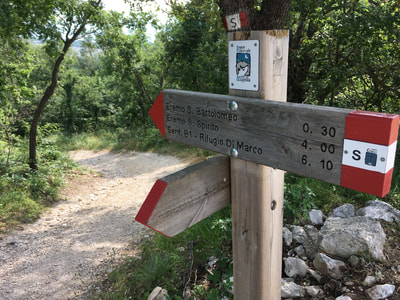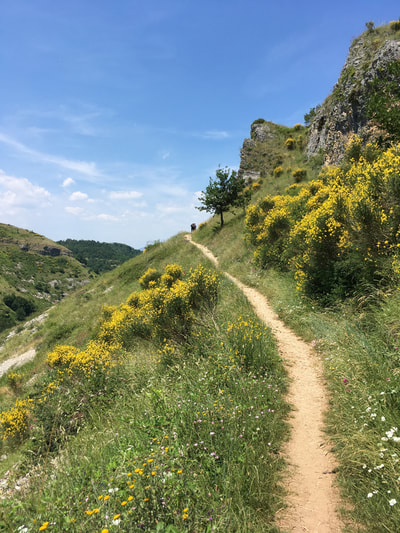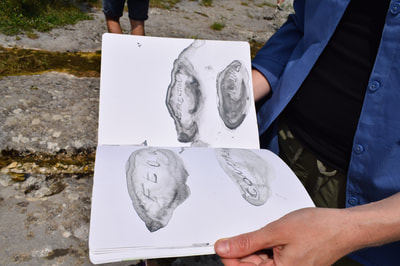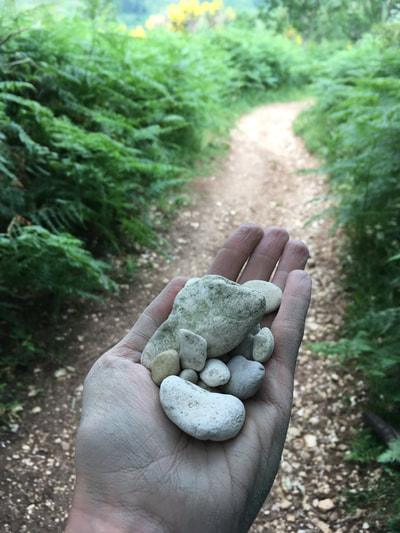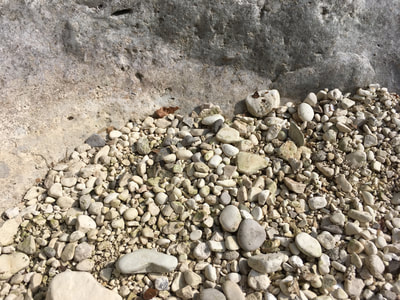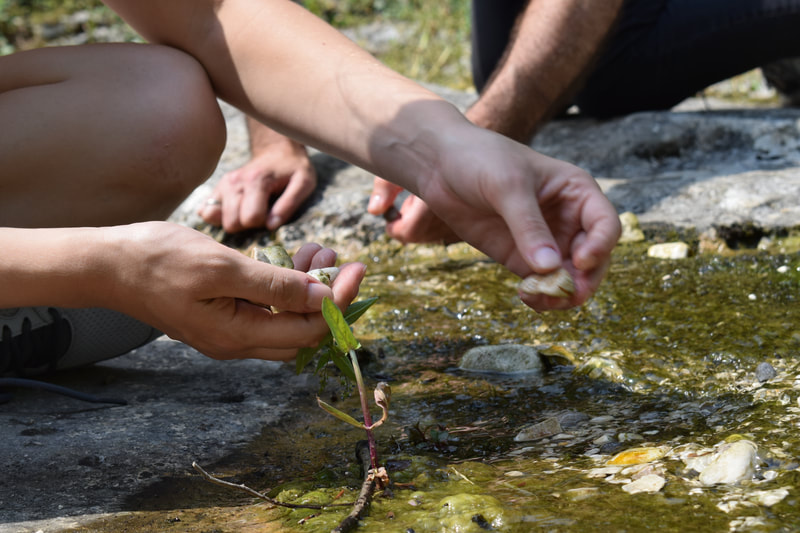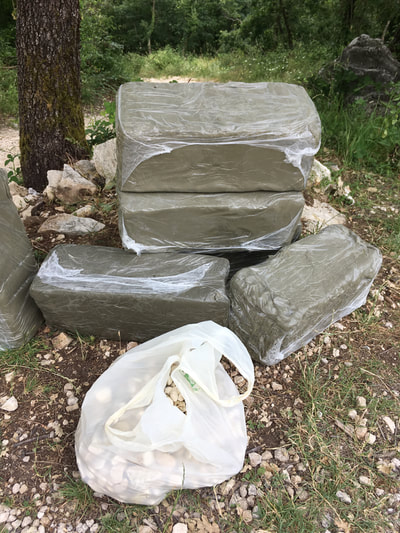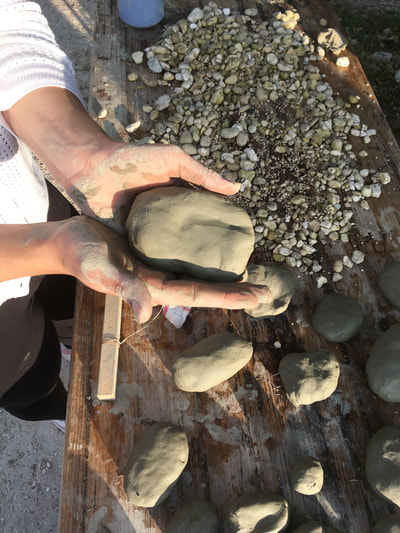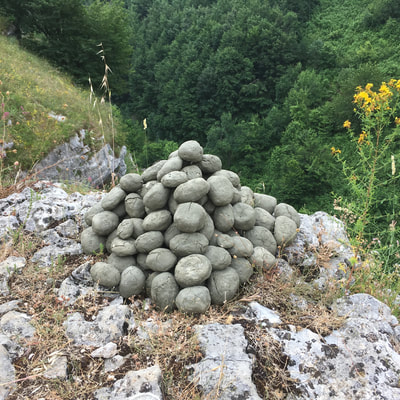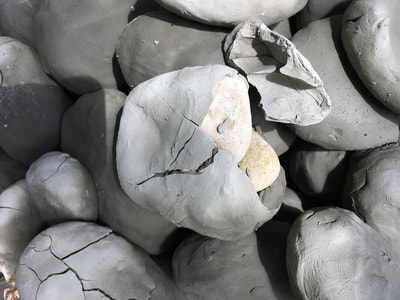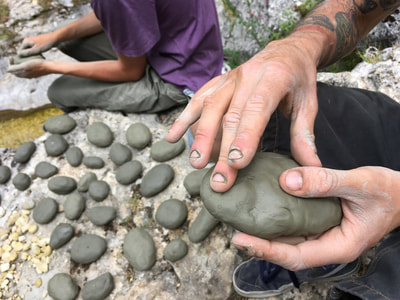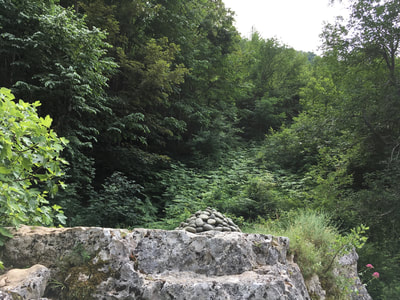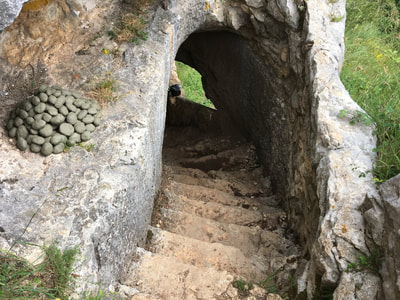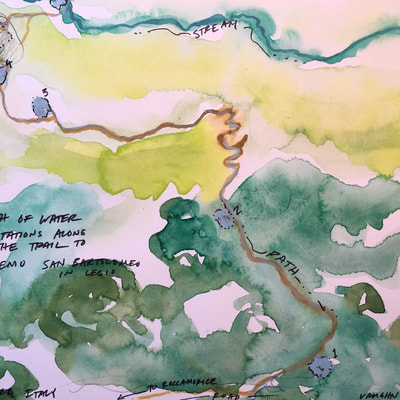PERCORSO D'ACQUA / PATH OF WATER
Percorso d'acqua / Path of water
2017
Eremo di San Bartolomeo, Roccamorice, Abruzzo, Italy
commissioned by Eremi Arte, created in collaboration with faculty and students from Accademia di Belle Arti L'Aquila
Vaughn stayed near the Hermitage di San Bartolomeo, observing and absorbing the atmosphere of this historic space of contemplation. She worked with students creating a meditative action and ephemeral installation with materials from the site.
“A path goes into the woods, past meadows of grass, wildflowers. At this moment, in this season, golden yellow flowers cover the slopes. Passing through a small grove of trees, we descend into a canyon. We walk the path as it curves across an exposed slope, with some little overlooks marked by crosses. From one, we can begin to hear the water flowing below us. When we reach the eremo (hermitage), built into the side of the cliff, half cave, we must enter through a hole in the rock. Sacred water enters the eremo and trickes across the stones inside. Continuing to descend, we reach the stream. It has carved the stone into curves and pools, leaving smooth white stones in eddies. Now it is full of tadpoles. In another season, it may be a raging torrent.
What was life like for the hermits when they lived here? How did their seclusion feel, what was in their minds? This work we are doing now is not a solitary venture. Many hands have collected smooth stones from the stream- stones touched by water. Many hands have mixed the little stream stones with clay to make big stones, and then we have stacked them in five cairns at specific spots along the path to help with a moment of pause, and perhaps reflection.
The hand-made stones dry, crack and eventually wash away in rain and water, leaving behind the smooth stream stones inside.”
- Vaughn Bell, notes on the artwork experience
2017
Eremo di San Bartolomeo, Roccamorice, Abruzzo, Italy
commissioned by Eremi Arte, created in collaboration with faculty and students from Accademia di Belle Arti L'Aquila
Vaughn stayed near the Hermitage di San Bartolomeo, observing and absorbing the atmosphere of this historic space of contemplation. She worked with students creating a meditative action and ephemeral installation with materials from the site.
“A path goes into the woods, past meadows of grass, wildflowers. At this moment, in this season, golden yellow flowers cover the slopes. Passing through a small grove of trees, we descend into a canyon. We walk the path as it curves across an exposed slope, with some little overlooks marked by crosses. From one, we can begin to hear the water flowing below us. When we reach the eremo (hermitage), built into the side of the cliff, half cave, we must enter through a hole in the rock. Sacred water enters the eremo and trickes across the stones inside. Continuing to descend, we reach the stream. It has carved the stone into curves and pools, leaving smooth white stones in eddies. Now it is full of tadpoles. In another season, it may be a raging torrent.
What was life like for the hermits when they lived here? How did their seclusion feel, what was in their minds? This work we are doing now is not a solitary venture. Many hands have collected smooth stones from the stream- stones touched by water. Many hands have mixed the little stream stones with clay to make big stones, and then we have stacked them in five cairns at specific spots along the path to help with a moment of pause, and perhaps reflection.
The hand-made stones dry, crack and eventually wash away in rain and water, leaving behind the smooth stream stones inside.”
- Vaughn Bell, notes on the artwork experience
